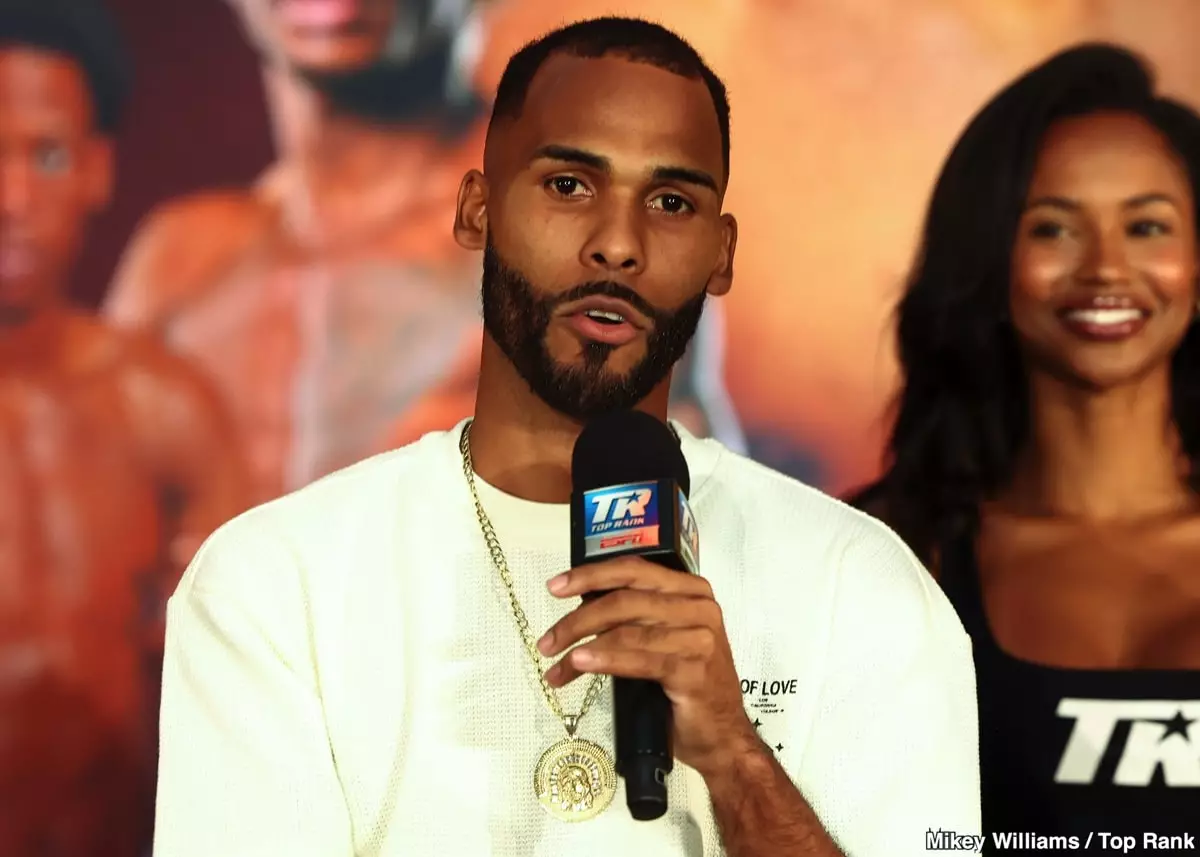The boxing world was buzzing before the anticipated fight between Keyshawn Davis and Edwin De Los Santos. However, the excitement quickly turned into disappointment when Davis missed weight, coming in over four pounds heavier than the limit for the lightweight category. This significant oversight not only jeopardized his own career but also left De Los Santos in a precarious position. Missing weight is not just a technical violation; it manifests a lack of discipline and respect for the sport, and more crucially, for one’s opponent. Davis’ failure to make weight raises questions about his commitment and professionalism, attributes essential for any successful fighter.
Davis’ weight debacle was more than just a number on a scale—it represented a broader issue within the sport. Fighters sometimes prioritize glory over safety, with promotional offers pushing them to enter the ring regardless of the risks involved. The stakes are high, but so are the dangers. When a fighter like Davis comes in overweight, it sets a dangerous precedent, not only for his own health but also for his opponent. It creates a disparity that can lead to dire consequences inside the ring.
De Los Santos: A Chance Lost
For De Los Santos, the fight represented an opportunity for not only a championship title but for a significant career-defining moment. Upon learning about Davis’ weight issue, De Los Santos expressed his desire to fight, emphasizing his warrior spirit and determination to claim the title regardless of Davis’ shortcomings. His readiness to step into the ring despite the odds reveals a commendable level of ambition. However, this bravado was thwarted by Sampson Lewkowicz, his promoter, who rightfully prioritized safety over financial gain.
Lewkowicz’s decision not to allow the fight to continue was not merely a tactical choice; it was an ethical one. Protecting a fighter’s health should always take precedence, and the disparity in size between Davis and De Los Santos was alarming. De Los Santos, weighing in at a maximum of 147 pounds, would have faced an opponent ballooning to an estimated 165 pounds. This mismatch could have led to serious injury—a risk that, despite financial temptation, Lewkowicz refused to entertain. It’s a testament to the integrity still present in boxing, amidst the numerous controversies that plague the sport.
The Aftermath: Navigating New Waters
In the wake of the fight that never was, De Los Santos now faces uncertainty, having parted ways with Lewkowicz shortly after the incident. Such a split is unfortunate, especially at a time when De Los Santos is seeking direction following a year of inactivity since his last bout. The desire for a promoter who genuinely cares for his career is paramount, but finding someone trustworthy may prove challenging, particularly given the circumstances surrounding his last fight.
De Los Santos’s ambitions remain intact, but the road ahead could be daunting. With a record of 16 wins and 2 losses, the fighter boasts an impressive knockout ratio. Still, the lack of recent action raises concerns about maintaining his peak performance. The boxing industry operates in a brutal environment where inactivity can lead to erosion of skills, fan interest, and ultimately, marketability. The dilemma he now faces requires not only strategic management but also a reestablishment of his footing within the lightweight division.
Promoter Dilemmas: The Industry Pushes Back
Lewkowicz’s decision to halt the fight also serves as a critique of the boxing industry itself. The relentless push for high-stakes matchups often overshadows the vital aspect of fighter welfare. Instead of cherishing the sport’s integrity, promoters sometimes get lost in the allure of financial gain, compromising safety. Davis’ miscalculation and De Los Santos’ desperation underline the urgent need for a reevaluation of how promotional decisions are made—balancing profit with the sanctity of the sport.
Furthermore, De Los Santos’ search for the right promoter illuminates a larger issue within boxing as well: the need for fighters to be guided by those who prioritize their health and autonomy over the prospect of a brief financial windfall. It’s a delicate balance—a fighter’s drive to engage in combat must never overrule the principle that safety is paramount. Finding promoters who understand that can pave the way for a healthier, more responsible boxing landscape.
Overall, the saga of Davis and De Los Santos paints a vivid picture of the struggles within professional boxing—where ambition clashes with ethics, and the well-being of fighters often hangs in the balance. As fans, we can only hope that this incident prompts much-needed conversations about the responsibilities of fighters and promoters alike, leading to a more respectful and safe environment in the ring.


Leave a Reply